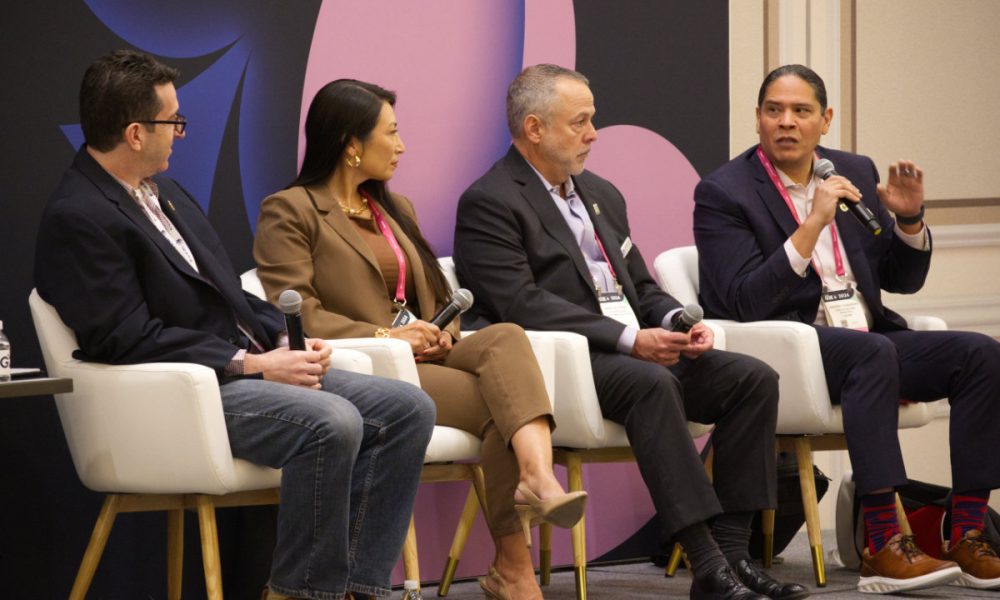The court decision allowing a hub-and-spoke system for online sports bets with a Florida tribal casino does not guarantee other states will embrace that model, according to a legal expert appearing at G2E in Las Vegas.
The key holding in the federal-court ruling didn’t legalize the hub-and-spoke model everywhere; rather, it made such an arrangement the subject of negotiations between tribes and states, explained Jonodev O. Chaudhuri, former chairman of the National Indian Gaming Commission and principal with Chaudhuri Law in Washington, D.C., who has extensive experience in tribal and gaming law.
“States and tribes are allowed to negotiate compacting solutions to off-reservation gaming,” Chaudhuri said. “That doesn’t automatically legalize all off-reservation gaming or all hub-and-spoke models.”
In what is known as the West Flagler case, the U.S. Supreme Court let stand a lower-court ruling that the Seminole tribe and Florida were within their rights to agree on a compact allowing the Seminoles to take online sports bets from anywhere in the state, as long as the servers accepting the wagers are on tribal land.
Chaudhuri gave his interpretation of the ruling during a Global Gaming Expo panel discussion titled “Opportunities in Tribal Gaming: Growth and Regulation.” Other panelists were Richard Sagman, senior vice president of product management at Everi; Frances Alvarez, chairwoman of Tribal Gaming Protection Network, a nonprofit organization providing regulatory services and education for the tribal-gaming industry; and Marcus Yoder, chief commercial officer for Playtech USA. The panel was moderated by Gene Johnson, executive vice president of Victor-Strategies, a casino consultancy with an emphasis on Indian Country.
Chaudhuri said Florida differs from other states, because it is home to only two tribes, which simplifies compact negotiations. Oklahoma and Arizona each have more than 20 tribes and California has more than 100.
All panelists agreed that the key to any negotiation about regulations is open communication throughout the process among all parties involved – regulators, operators, suppliers, and even those in other jurisdictions who have experience with the issues being discussed.
Alvarez said one challenge for those groups is the difference in their professional backgrounds. Regulators typically have legal, law-enforcement, or administrative experience, while cybersecurity and technical staff do not. Regulators need a trusted source with knowledge of constantly evolving technology, while also recognizing that existing regulations might be outdated or too stringent, she said.
Yoder suggested that suppliers explain to regulators how a new technology works and what it’s supposed to do. That will help regulators in their dealings with operators, he said.
Sagman said regulators aren’t trying to stifle innovation, but making sure that new processes follow existing regulations. “There will be times when those regulations may have to change as technology changes, but the principles behind the technology and the products are always the same,” he said.
Alvarez emphasized that regulators should be included in discussions of new technology from the beginning and through the development. “At some point, you’re going to ask: Are the regulators a roadblock or a brick wall? I see it as just a mini speed-bump and that’s because it is intentional. We have to protect our assets, our tribes, our casinos, our properties.”
Yoder encouraged more communication between tribal regulators in different jurisdictions. “We’ve got people who move forward in Class 2 mobile on-premises in California, Oklahoma, Minnesota, and New York. Those regulators are far enough away from one another that they’re not competitive.”
Sagman cited recent developments in Class 2 mobile gaming, including Class 2 fantasy sports betting and standard bingo within Class 2 mobile slots. Differences between a modern Class 2 game on a mobile phone or EGM and its Class 3 counterpart are minimal, he said. “Tribes should be thinking about leaning back into Class 2, because now technology allows you to do high-quality Class 2 games as well as Class 3 games.”
Alvarez predicted a bright future for tribal operators, thanks to Indian Country’s ongoing emphasis on education in science, technology, engineering, and math (STEM). “Maybe in five years, we’re going to be the key experts on this topic. Tribes are going to have their own experts. I’ve also met individuals interested in starting indigenous software companies, providers, technology, even a slot manufacturer. We’re going to own our own cyber technology, cybersecurity, and even some manufacturing businesses.”
Chaudhuri said he saw two potential futures. In the rosier one, tribes own the player data they’ve developed over the years and have a stake in the technologies that turn that data into revenue. In the other potential future, third-party vendors get the lion’s share, with no lasting benefit to tribes. “That’s a future I hope doesn’t happen,” he conlcuded.




